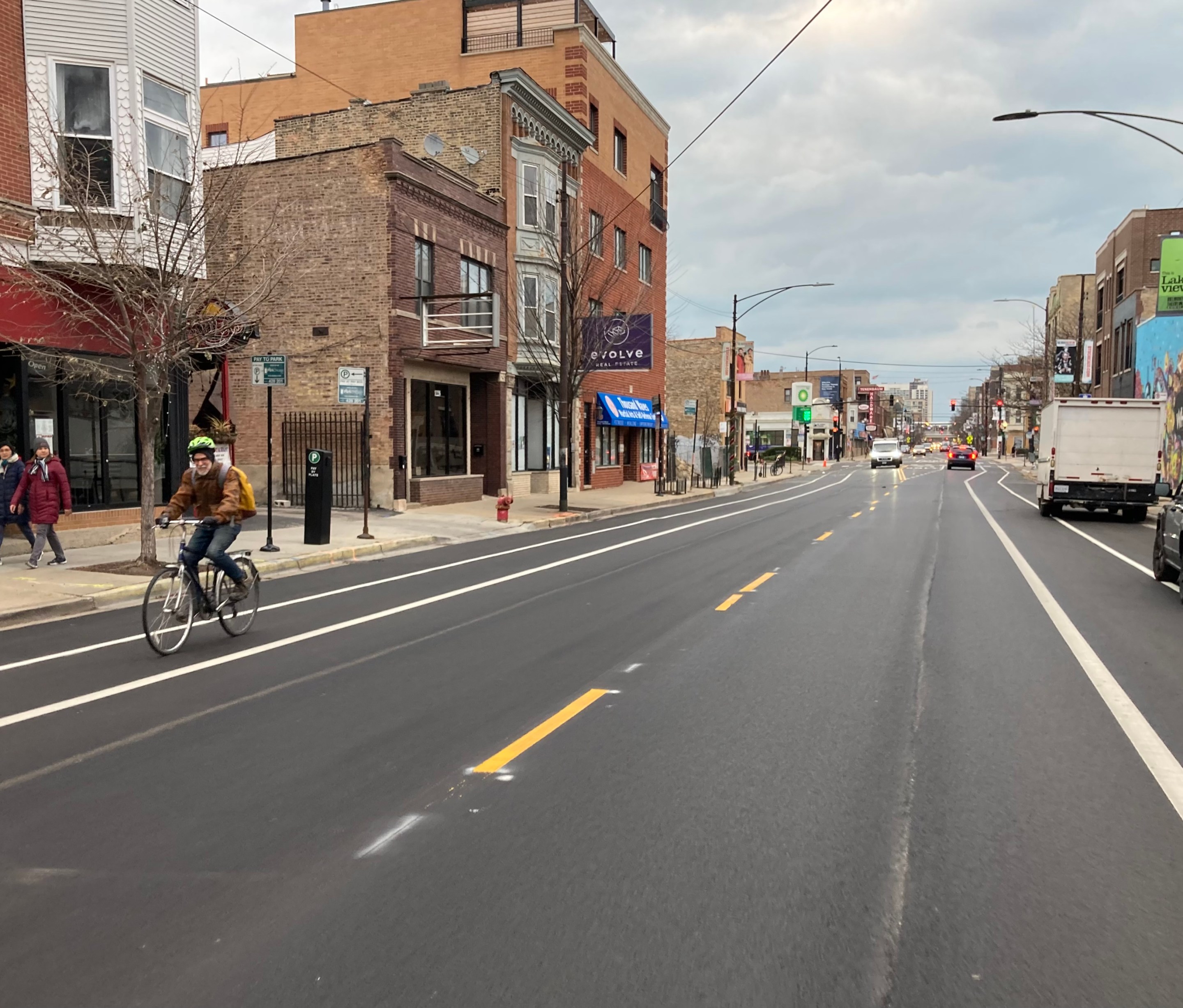If we're serious about addressing Chicago's pandemic-era traffic fatality epidemic, as well as reducing congestion and pollution, and fighting climate change, we're going to have to break a few eggs to make that omelet. That means city officials must implement modern, world-class street designs that prioritize the safety of all road users – especially people on foot, bike, and other micro-mobility devices – instead of clinging to the 20th Century mindset they must make it as convenient as possible to drive and park cars.
That's what makes the Chicago Department of Transportation's current makeover of Belmont Avenue in Lakeview such a disappointment. It represents a missed opportunity to make the corridor, lined with pedestrian-friendly retail and served by Red and Brown line stations, a safer, more efficient, and more vibrant strip.
In fairness the work includes modest improvements for traffic safety and sustainable transportation. The current street resurfacing project runs 1.3 miles between DuSable Lake Shore Drive (630 W.) and Southport Avenue (1400 W.) Two more blocks of Belmont, between Southport and Ashland Avenue (1600 W.) will be repaved later as part of the Lincoln/Ashland/Belmont streetscape project.
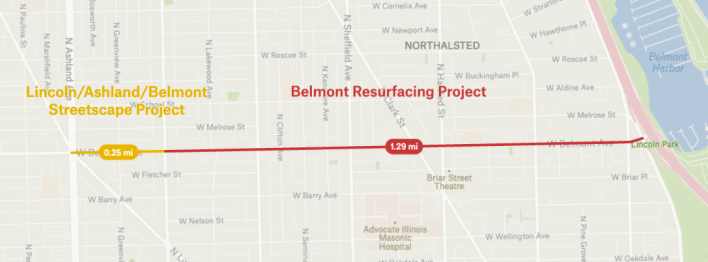
The current work includes ADA sidewalk upgrades, and curb and gutter removal and replacement for better drainage. All intersections that don't currently have curb bump-outs to shorten pedestrian crossing distances are getting them. Concrete bus pads, which prevent rippling asphalt from the weight of the multi-ton vehicles, are being installed at stops. And bike lanes are being added, with green pavement coloring and bike boxes painted at major intersections.
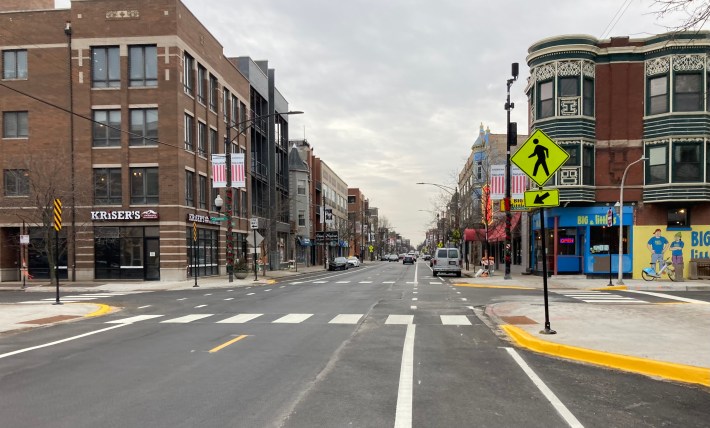
The problem is that the bikeways are only only being striped from Southport to Clark Street (830 W.), about half the length of the project area, and they won't connect to the Lakefront Trail. According to the 44th Ward office, CDOT opted not to install bike lanes between Clark and the shoreline because Belmont narrows on that stretch and gets congested during rush hours.
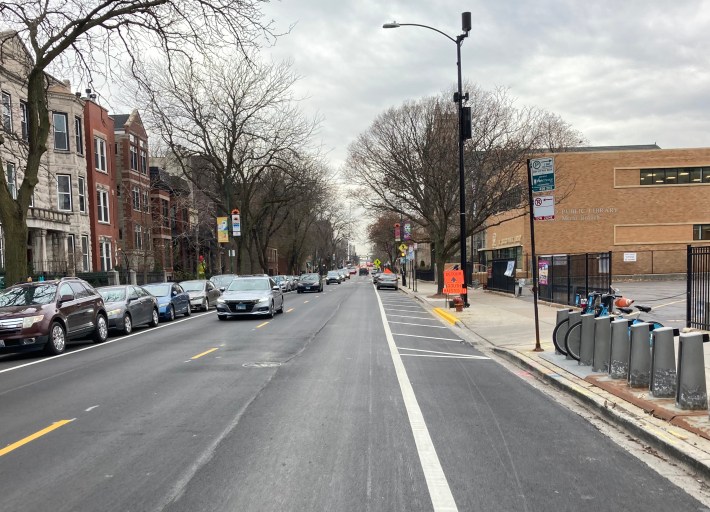
And the bikeways the department is installing are almost entirely non-protected lanes located in the "door zone" to the left to parked cars. While this type of facility may represent a slight upgrade for some seasoned urban cyclists like myself, they're fairly useless for encouraging new people to try biking for transportation. Most "normal" Chicagoans understandably have no interest in riding anywhere there's a risk of being struck by reckless drivers, or "doored" by negligent motorists who fail to check for bikes before getting out of their vehicles.
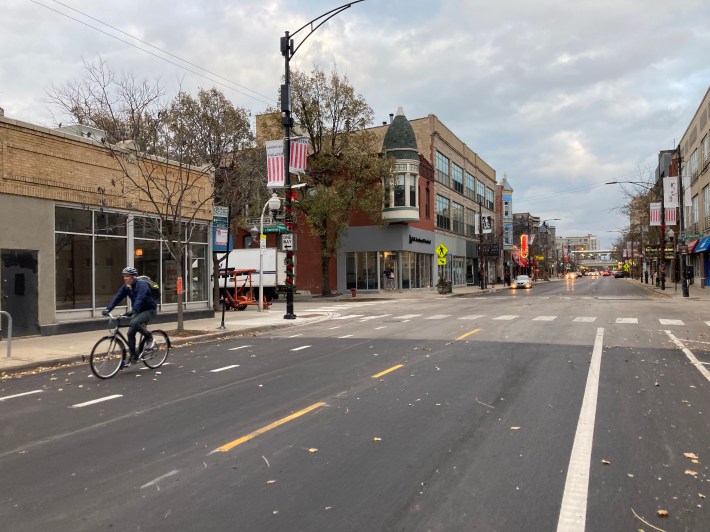
If transportation officials and local alder Tom Tunney (44th) placed more emphasis on keeping people safe, encouraging sustainable modes, and steering more foot and bike traffic to local businesses, we could have had a much better street design. Local resident Jeremy Frisch noted that curbside protected bike lanes could have been built, even on the narrower segment east of Clark, if the city stripped car parking from one side of the street.
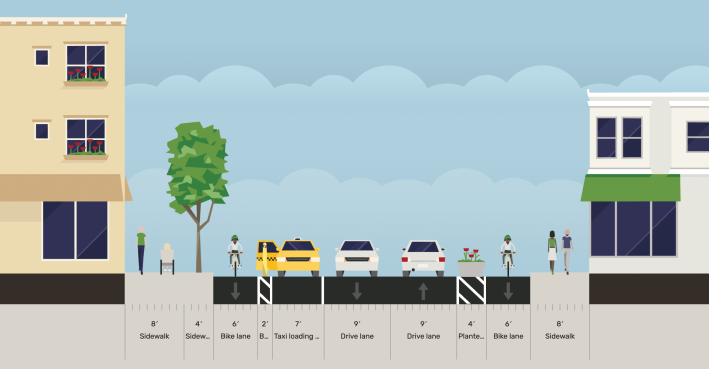
Yes, that approach would have been complicated by Chicago's horrible 75-year parking meter contract, which requires the city to compensate the concessionaire for any lost revenue due to the removal of metered spaces. But that hasn't been a dealbreaker for bike lane projects that involve stripping parking in wards with more bike-friendly alders, such as Milwaukee Avenue in Logan Square (where the alder is Daniel La Spata [1st]) and Clark Street in Uptown (where the rep is Matt Martin [47th.])
Sure, the potential impacts of removing car parking on local merchants and residents should be considered. But in general when the city chooses to install subpar bikeways, or none at all, rather than eliminate space for storing private metal boxes on the public way, it's mostly an issue of political will. Ald. Tunney will be stepping down this spring, so hopefully his successor will understand that creating safe space for greens modes is more important than preserving all car parking.
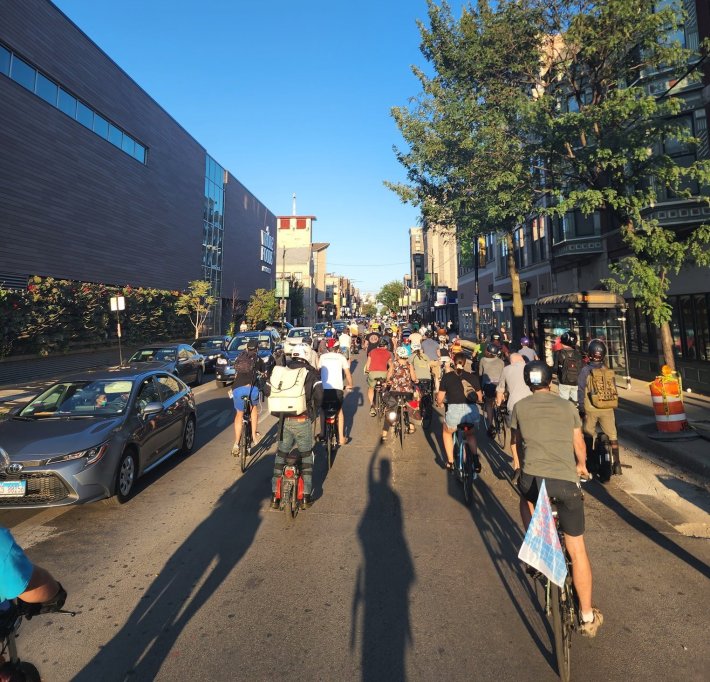
Local transportation advocates were so frustrated by the situation on Belmont that in September they joined forces for a protest bike ride to call for more robust walk/bike/transit infrastructure. The demonstration was organized by Chicago, Bike Grid Now in partnership with Frisch, Urban Environmentalists Illinois, Better Streets Chicago, and Chicago Family Biking. Unfortunately, their demands apparently fell on deaf ears.
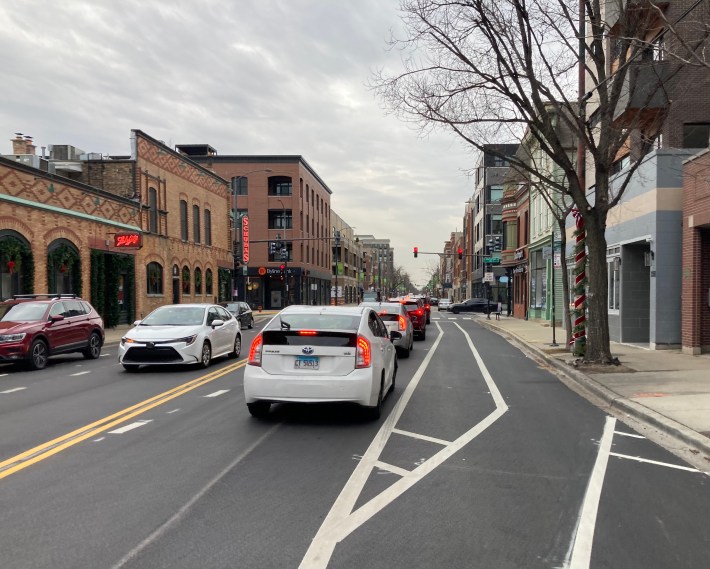
While the work on Belmont was originally supposed be completed last month, the 44th Ward and CDOT recently said the project should wrap up this week. On the bright side, a short stretch of curbside protected bike lane will be installed at the northeast corner of Belmont/Southport, across the street from Schubas Tavern. To accommodate a wide concrete barrier to the left of the bikeway, the existing westbound 77 Belmont bus stop will be moved to the northwest corner of the intersection.
